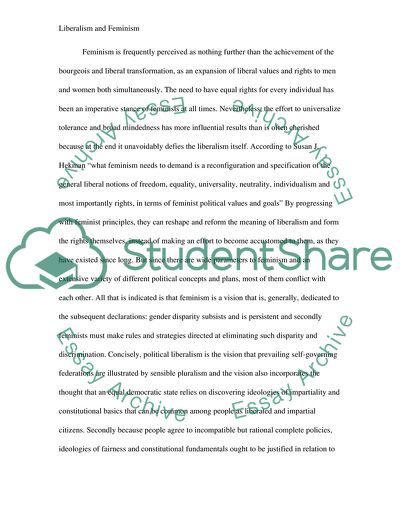Cite this document
(Discuss the relationship between liberalism and feminism. (You may Essay, n.d.)
Discuss the relationship between liberalism and feminism. (You may Essay. Retrieved from https://studentshare.org/history/1757022-discuss-the-relationship-between-liberalism-and-feminism-you-may-want-to-restrict-your-discussion-to-one-thinker-or-one-strand-of-feminist-thought
Discuss the relationship between liberalism and feminism. (You may Essay. Retrieved from https://studentshare.org/history/1757022-discuss-the-relationship-between-liberalism-and-feminism-you-may-want-to-restrict-your-discussion-to-one-thinker-or-one-strand-of-feminist-thought
(Discuss the Relationship Between Liberalism and Feminism. (You May Essay)
Discuss the Relationship Between Liberalism and Feminism. (You May Essay. https://studentshare.org/history/1757022-discuss-the-relationship-between-liberalism-and-feminism-you-may-want-to-restrict-your-discussion-to-one-thinker-or-one-strand-of-feminist-thought.
Discuss the Relationship Between Liberalism and Feminism. (You May Essay. https://studentshare.org/history/1757022-discuss-the-relationship-between-liberalism-and-feminism-you-may-want-to-restrict-your-discussion-to-one-thinker-or-one-strand-of-feminist-thought.
“Discuss the Relationship Between Liberalism and Feminism. (You May Essay”. https://studentshare.org/history/1757022-discuss-the-relationship-between-liberalism-and-feminism-you-may-want-to-restrict-your-discussion-to-one-thinker-or-one-strand-of-feminist-thought.


